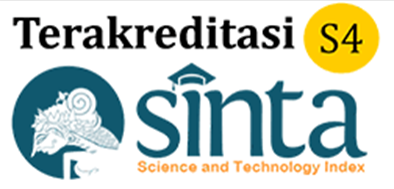Evaluasi Program Kota Tanpa Kumuh (KOTAKU) dalam Penanganan Kawasan Kumuh di Kabupaten Karo
Abstract
The City Without Slums Program or KOTAKU is a government program that aims to overcome poverty and create livable cities for Indonesian people, one of which is in Karo Regency. However, in reality there are still waste problems in Karo Regency and poor drainage which indicates that KOTAKU has not been realized properly. This study aims to describe and examine the evaluation realization of the KOTAKU program in dealing with slum areas in Karo District. The research method used in this research is descriptive research with a qualitative approach. The results of the research show that the implementation of KOTAKU in Karo Regency is in accordance with the predetermined plan so that it meets the indicators of effectiveness. The KOTAKU program has met the adequacy indicators where KOTAKU is a solution to the slum problem in Karo Regency, provides better access to the community, and helps the community to change habits to become more environmentally friendly. Unfortunately, the focus of the KOTAKU program is in the Kabanjahe and Berastagi areas.
References
Dapit, Soleh. (2021). Evaluasi Program Kota Tanpa Kumuh (KOTAKU) di Kota Sukabumi. Jurnal Inovasi Penelitian, Vol. 2 No. 5.
Dun, William N. (2003). Analisis Kebijakan Publik. Yogyakarta : Pers Universitas Gadjah Mada.
Ibrahim. (2018). Metodologi Penelitian Kualitatif: Panduan Penelitian Beserta Contoh Proposal Kualitatif. Bandung: Alfabeta.
Kawasan Kumuh Perkotaan di Karo Capai 133 Hektar. https://www.orbitdigitaldaily.com/kawasan-kumuh-perkotaan-di-karocapai-133-hektar/. (Diakses 16 Agustus 2022).
Lejlu, A., Masjaya & Irawan, B. (2014). Evaluasi Kebijakan Pembangunan Transmigrasi di Kabupaten Mahakam Ulu (Studi Pada Kecamatan Long Hubung Kabupaten Mahakam Ulu). Jurnal Administrative Reform. 2(4), 515-527.
Lukman, M. (2015). Studi Evaluasi Pelaksanaan Kebijakan Pemeliharaan Jalan Kota di Kota Surabaya. Jurnal Kebijakan dan Manajemen Publik. 3(1), 1- 11.
Moleong, Lexy J. (2017). Metodologi Penelitian Kualitatif Edisi Revisi. Bandung: PT Remaja Rosdakarya.
Permukiman Kumuh di Indonesia naik dua kali lipat.https://ekonomi.bisnis.com/read/20190903/47/1144250/permukimankumuh-di-indonesia-naik-dua-kali-lipat. (Diakses 18 Agustus 2022).
Steers, Richard M. (1980). Efektivitas Organisasi. Jakarta: Erlangga.
Surat Keputusan Bupati Karo No.653/ 029/ 2021 tentang luas kawasan permukiman dan perumahan kumuh.
Undang Undang Dasar tahun 1945 Pasal 28.
Wijaya, I. (2022). Partisipasi Masyarakat dalam Program Kota Tanpa Kumuh di Kota Malang. Jurnal Perencanaan Tata Ruang dan Lingkungan. 11(1), 101-123.
Copyright (c) 2024 Jurnal Manajemen dan Ilmu Administrasi Publik (JMIAP)

This work is licensed under a Creative Commons Attribution 4.0 International License.













